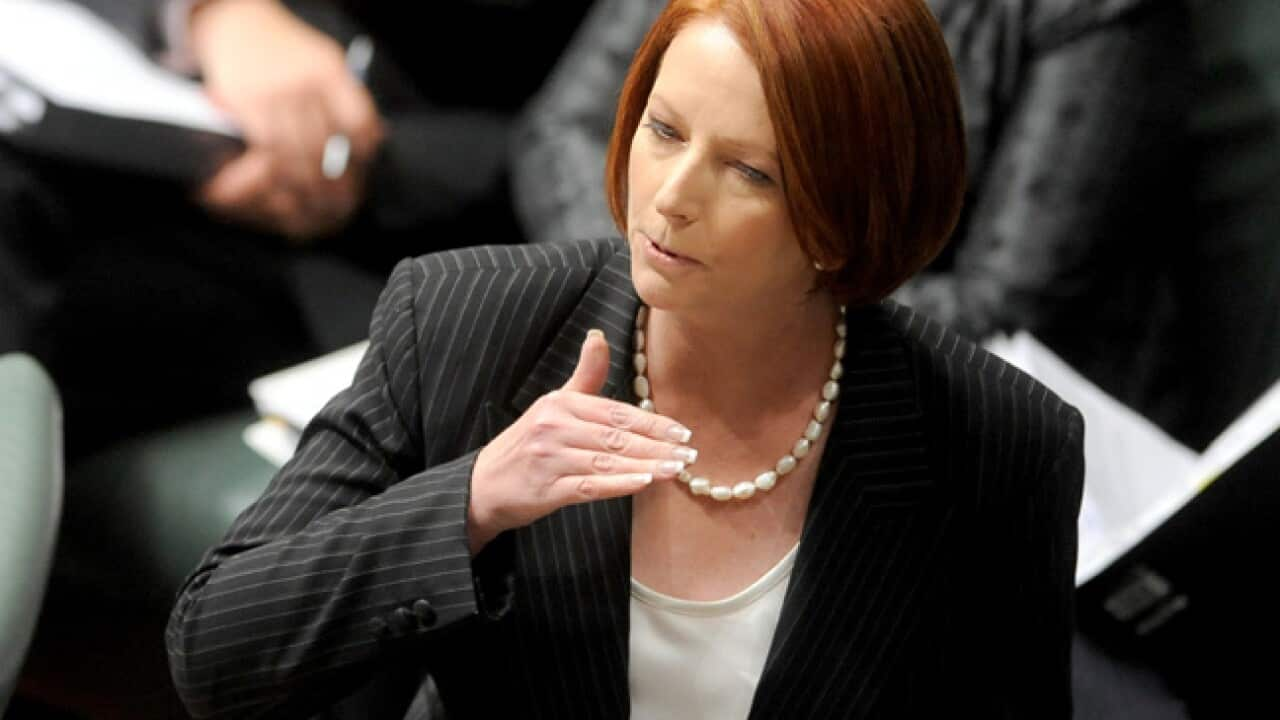Prime Minister Julia Gillard has warned European leaders the time for "muddling through" is over and decisive action is needed to end the sovereign debt crisis before G20 leaders meet in three weeks.
Hopes that a European summit on October 23 would bring down a deal were dashed by German finance minister Wolfgang Schaeuble on Monday, who said a permanent solution was unlikely to arise out of the gathering.
"In three weeks I will meet G20 leaders in Cannes - a meeting which will hopefully place important ballast under the global economic recovery," Ms Gillard told a forum in Wollongong, NSW.
"But between now and then, European leaders must take decisive action to put an end to the sovereign debt crisis."
The G20 leaders will meet on November 3 and 4.
Treasurer Wayne Swan told an audience in London on Monday that the Australian economy, despite its strong fundamentals and tiny exposure to European banks, was being hit by turmoil in Europe.
"Already, we are seeing substantial consequences for government revenue which makes our target of surplus by 2012/13 more difficult to achieve," he said in a speech to Austrade and Australian business.
Opposition treasury spokesman Joe Hockey said the remarks were just more excuses from the treasurer, who had now downgraded his budget surplus pledge to a `target'.
"The treasurer wants you to believe he can deliver a budget surplus, but as each day goes by there's increasing doubt that he ever will," Mr Hockey said in a statement.
"It's time Wayne Swan stopped finding excuses and blaming others.
In Canberra, the Department of Finance told a Senate estimates hearing that the government's $10 billion Clean Energy Finance Corporation would be an initial burden on the budget, on top of a $4.3 billion shortfall from its carbon price policy.
Mr Hockey told Sky News this was a "very significant revelation".
"That's a $14 billion hole in the government's budget as a result of the carbon tax," he said.
Still, the department secretary David Tune told the hearing a return to surplus in 2012/13 "remains the current plan".
The Reserve Bank of Australia's (RBA) minutes from its October board meeting two weeks ago, released on Tuesday, said conditions in global markets had continued to be unsettled by increased uncertainty over Europe's sovereign debt and banking problems, and the outlook for global growth.
The minutes said Australian economic growth was likely to slow and inflation appeared to be less concerning than had been thought a few months ago.
It said underlying inflation over the year to the June quarter, following a reweighting conducted by the Australian Bureau of Statistics, is now estimated at 2.25 per cent to 2.5 per cent rather than 2.5 per cent to 2.75 per cent.
"The medium-term inflation outlook may now be more consistent with the 2-3 per cent target," the minutes said, while noting that September quarter inflation data will be released on October 26.
"Members believed that an improved inflation outlook, if confirmed by further data, would increase the scope for monetary policy to provide some support to demand, should that prove necessary."
But Nomura Australia chief economist Stephen Roberts said local economic data since the meeting implied the RBA would not likely conclude domestic demand needed the support of a rate cut "even if inflation forecasts permit".

